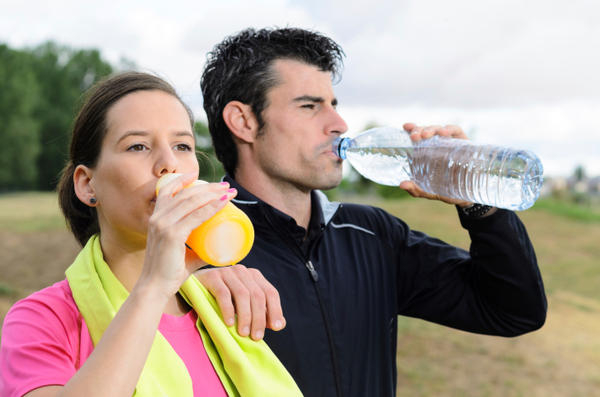Heat Exhaustion and Heat Stroke
Written by Debbra A. Livingston, MSN, ARNP, BC; Jacksonville District
Heat-related illnesses, such as heat exhaustion and heat stroke, occur when your body can't keep itself cool. As the air temperature rises, your body stays cool when your sweat evaporates. On hot, humid days, the evaporation of sweat is slowed by the increased moisture in the air. When sweating isn't enough to cool your body, your body temperature rises, and you may become ill.

What is heat exhaustion?
Heat exhaustion happens when your body gets too hot. It can be caused by physical exercise or hot weather.
You may experience:
- Heavy sweating
- Feeling weak and/or confused
- Dizziness
- Nausea
- Headache
- Fast heartbeat
- Dark-colored urine, which indicates dehydration
What should I do if I think I have heat exhaustion?
If you think you have heat exhaustion, get out of the heat quickly. Rest in a building that has air-conditioning. If you can't get inside, find a cool, shady place. Drink plenty of water or other fluids. Do NOT drink alcohol or caffeinated drinks (such as soda). These can make heat exhaustion worse. Take a cool shower or bath, or apply cool water to your skin. Take off any tight or unnecessary clothing.
If you do not feel better within 30 minutes, you should contact your doctor. If heat exhaustion is not treated, it can progress to heatstroke.
What is Heat Stroke?
Heat stroke is when your body temperature rises to 104 degrees or higher. This is a very serious illness and may cause severe damage to organs and brain. Heat stroke may result in death.
Heatstroke symptoms include:
- Altered mental state or behavior. Confusion, Agitation, slurred speech, irritability, delirium, seizures and coma can all result from heat stroke.
- Alteration in sweating. In heatstroke brought on by hot weather, your skin will feel hot and dry to the touch. However, in heatstroke brought on by strenuous exercise, your skin may feel moist.
- Nausea and vomiting. You may feel sick to your stomach or vomit.
- Flushed skin. Your skin may turn red as your body temperature increases.
- Rapid breathing. Your breathing may become rapid and shallow.
- Racing heart rate. Your pulse may significantly increase because heat stress places a tremendous burden on your heart to help cool your body.
- Headache. Your head may throb.
When to see a doctor?
IMMEDIATELY!!!!!!
If you think a person may be experiencing heatstroke, seek immediate medical help. Call 911 or your local emergency services number.

References/Sources
Management of Heatstroke and Heat Exhaustion by JL Glazer, M.D. (American Family Physician June 01, 2005, http://www.aafp.org/afp/20050601/2133.html)


